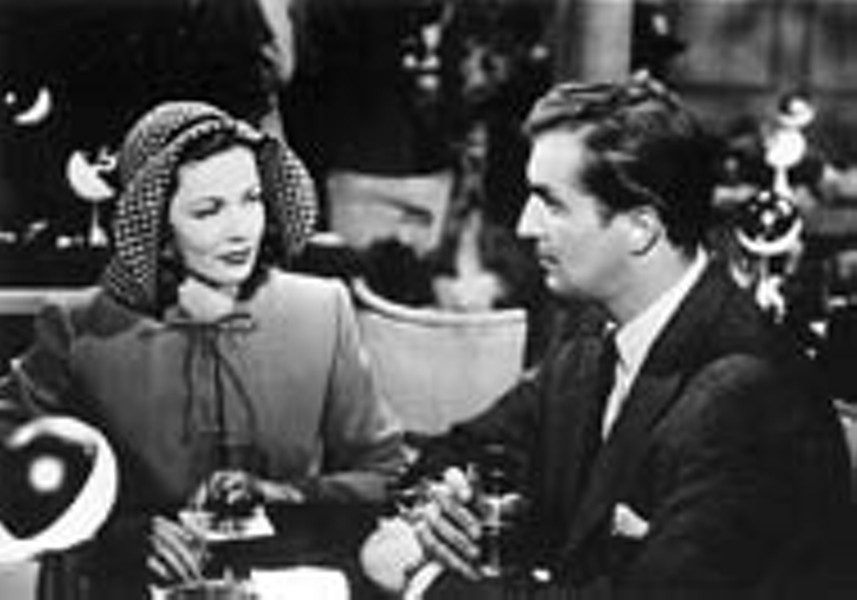Movie:  1/2
1/2
Extras: 
 1/2
1/2
FINDING NEVERLAND (2004). Entertaining if a tad overrated, this fanciful tale seeks to explain how playwright J.M. Barrie initially came up with the idea for his children's classic, Peter Pan. What ends up on the screen is as much fiction as fact (probably more so), but it's the sort of inspirational saga that will make audiences wish this was the way it really happened. A gentle Johnny Depp is just right as Barrie, who, as the story begins, is unhappy with both his work (his latest play is a bomb) and with his marriage to a beauty (Radha Mitchell) who doesn't share his passions. He eventually finds inspiration through a widow (Kate Winslet) and her four sons, particularly the moody Peter (Freddie Highmore), but these newly formed friendships are hampered by interference from the widow's stern mother (Julie Christie) as well as his own neglected wife. Director Marc Forster (Monster's Ball) and scripter David Magee have made a film that's bursting with warmth and wit, and the sequence in which an ailing Winslet gets drawn into an impromptu staging of Peter Pan should moisten the eyes of every viewer on the couch. Dustin Hoffman contributes some nice moments as Barrie's patient producer, while Highmore's impressive performance as young Peter bodes well for his starring role as Charlie (opposite Depp as Willy Wonka) in Tim Burton's upcoming Charlie and the Chocolate Factory. The original score by Jan A.P. Kaczmarek earned an Oscar. DVD extras include audio commentary by Forster, Magee and producer Richard Gladstein, deleted scenes, and a pair of making-of features.
Movie: 


Extras: 
 1/2
1/2
FOX FILM NOIR (1944-1950). The home entertainment branch of 20th Century Fox has elected to launch a new DVD series dedicated to film noir, but aside from Laura (1944) - one of the quintessential noirs - the other selections hover on the edge of the genre rather than smack in the middle of it. Despite containing elements of the form, both Call Northside 777 (1948) and Panic In the Streets (1950) dilute it by adding more realism to the mix. On-location filming replaces smoke-choked studio sets, nurturing wives replace femme fatales, and documentary grittiness replaces fanciful fatalism - in these regards, the pair have more in common with the works of Jules Dassin than the output of Fritz Lang or Robert Siodmak.
Still, that's not meant as a knock on their entertainment value. Northside, based on actual events, casts James Stewart as a skeptical Chicago reporter who grudgingly comes to believe that the man (Richard Conte) who's serving a life sentence for killing a cop 11 years earlier may in fact be innocent of the crime. And Panic, directed by Elia Kazan from an Oscar-winning story, finds a doctor (Richard Widmark) and a cop (Paul Douglas) pooling their resources to track down a pair of criminals (Jack Palance and Zero Mostel) who are unwittingly carrying the bubonic plague through the back streets of New Orleans. Stewart's brusque characterization provides Northside with its edge, while Panic benefits immeasurably from a menacing turn by Palance (billed here as Walter Jack Palance). And both titles offer the snap, crackle and pop expected of efficient crime thrillers.
Laura, meanwhile, exists in a class by itself. A genuine classic - not only of film noir but of film, period - director Otto Preminger's adaptation of Vera Caspary's novel lathers the murder-mystery with a heavy dollop of kinkiness, beginning with the fact that its hero may well be a necrophiliac. Detective Mark McPherson (Dana Andrews) is sent to investigate when a beautiful woman named Laura (Gene Tierney) appears to have been brutally murdered, the victim of a shotgun blast to the face. As McPherson rounds up the unusual suspects - Laura's cynical mentor (superb Clifton Webb), her leechlike fiancé (Vincent Price, also excellent) and her duplicitous aunt (Judith Anderson) - he discovers that he's slowly falling in love with a corpse. Matching Hitchcock's Vertigo as a study of unhealthy obsession and the male desire to harness the feminine mystique - and throwing in a measure of class warfare, to boot - Laura owes a sizable debt to both cinematographer Joseph LaShelle, whose black-and-white lensing earned an Oscar, and composer David Raksin, whose score still reigns as one of cinema's finest. Raksin's music suits the occasion: Like the film itself, it's lush, dreamy and an invitation to wallow in the decadence.
DVD extras on Laura include audio commentaries by Raksin (who passed away last August at the age of 92) and film historians Rudy Behlmer and Jeanine Basinger, a deleted scene, and Biography episodes on Tierney and Price; extras on the other two titles are comprised of audio commentary by film historians James Ursini and Alain Silver and the theatrical trailer (Northside also includes a news clip of the movie's premiere).
Laura: 



Extras: 


Call Northside 777: 


Extras: 

Panic In the Streets: 


Extras: 

- Matt Brunson

